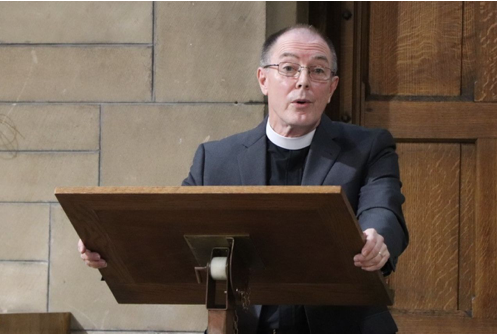When does Christmas(tide) end?
The Reverend Dr Michael Hull writes:
Christmas never ends insofar as God’s gift of Jesus in the Incarnation is eternal, but Christmastide comes and goes each year. Christmastide, the duration of the liturgical season of Christmas, is debated among us. Whilst we all agree it begins on Christmas Day with the Nativity of our Lord, we do not agree on when it ends.
Some folks opt for eight days: Christmastide ends on 1 January with the Circumcision of our Lord. This ‘octave’ or eight-day pattern of observance is ancient. It goes back to the Jewish rite of circumcision as a sign of the covenant between God and Abraham (Genesis 17.10–14; Leviticus 23.36, 39; Numbers 29.35; 2 Chronicles 7.9; Nehemiah 8.18). The rite is typified in Jesus’s infancy: ‘And at the end of eight days, when he was circumcised, he was called Jesus, the name given by the angel before he was conceived in the womb’ (Luke 2.21; cf. 1.31). The earliest Christians associated an octave with Easter. For example, the Epistle of Barnabas (c. 70–130) speaks of Jesus’s Resurrection on the ‘eighth day’.
Some folks opt for twelve days, the so-called twelve days of Christmas: Christmastide ends on 6 January with the Epiphany of our Lord. St Matthew (2.1–12) tells of the wise men whose worship of the Baby Jesus signposts the gift of salvation to the Gentiles. And so, it would seem, the Epiphany is integral to Christmastide, wherein the manifestation of the Christ is seen to be for all nations and ties into the Great Commission (Matthew 28.19). The liturgical celebration of twelve days of Christmas also has historical precedent. It goes back to at least the sixth century and Council of Tours in 567. It has been particularly popular in British culture from the Middle Ages. Think of William Shakespeare’s romantic comedy the Twelfth Night and the popular carol ‘The Twelve Days of Christmas’.
Some folks, myself included, opt for forty days: Christmastide ends on 2 February with the Purification of Mary the Blessed Virgin. Luke 2.22–40 is a deeply moving passage of Holy Scripture. There we encounter not only the Lord Jesus, but Mary and Joseph, and Simeon and Anna, whose powerful witness are without parallel. Mary and Joseph come to the Temple as devout Jews to fulfil the Mosaic Law as per Leviticus 12. We can only imagine what goes on in their minds. This Jesus is not only their Child but their Saviour. Simeon and Anna, also devout Jews, prophesy the sorrows and joys that lie ahead for the Holy Family. This, by my lights, is essential to Christmastide because it associates Jesus’s identity with his works. Just as Advent, the liturgical season of anticipation, holds together both expectation of the birth of the baby Jesus in human flesh and expectation of the return of the Lord Jesus in the Second Coming, so Christmastide should hold together the innocent Child and the crucified Christ.
The Purification’s historical pedigree dates to at least the fourth century. Its celebration in Jerusalem is recorded by Etheria in Peregrinatio Etheriae. It is often called ‘Candlemas’ because of the custom of blessing candles on that day had set-in by the eleventh century itself, largely on account of the processions associated with its celebration, which began early in the morning and called for the use of torches. Etheria writes of the Purification as being celebrated with solemnity, including a procession to the Church of the Holy Sepulchre to echo Jesus, Mary and Joseph’s going to the Temple. Again, by my lights, this links the advent of the Messiah with his saving work because Christmas is not an end, but a beginning as prophesied by Anna.
The same is true of our lives as Christians. Our (re)birth as Christians, that is our baptism, is not meant to be an end but a beginning of a life of discipleship. Our discipleship follows the example set by our Lord in his earliest days: an orientation towards the will of his heavenly Father in the company of his family (Joseph and Mary) and his wider community (Simeon and Anna). Thereafter, all the while he walks as an adult, Jesus makes of himself a gift to humanity in his words and deeds of charity, with his eyes yet fixed on the Temple in terms of his gift on the Cross. The fruits of that gift are eternal, just like those of his Incarnation.
Christmas, then, never ends, no matter how we mark Christmastide. The same may be said for our discipleship. As Christians we should seek to make ourselves gifts to humanity in words and deeds of charity, and be eager for Jesus’s glorious return and our entry into the heavenly Temple of the new Jerusalem.

The Reverend Dr Michael Hull has been an Assistant Priest at St Vincent’s since 2015. He is also Director of Studies for the Scottish Episcopal Institute
